Click to see more
Back
Next
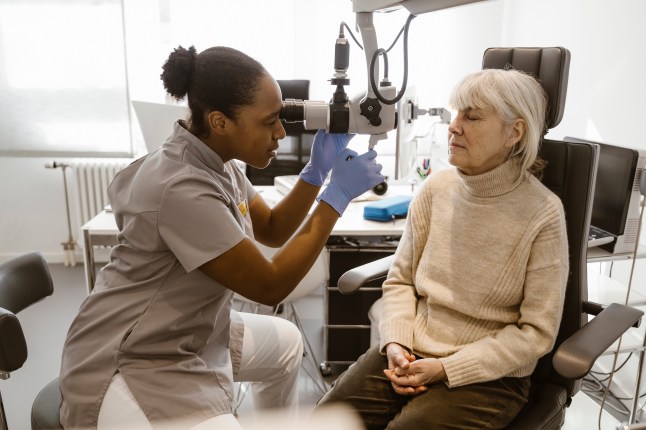
In a world first,scientists from Science Corporation say they have developed a retinal implant capable of restoring sight to people who are suffering from vision loss. The eye chip allows patients who are suffering from certain irreversible blindness to read text and do crosswords through ‘artificial vision’. (stock image) (Picture: Getty Images)
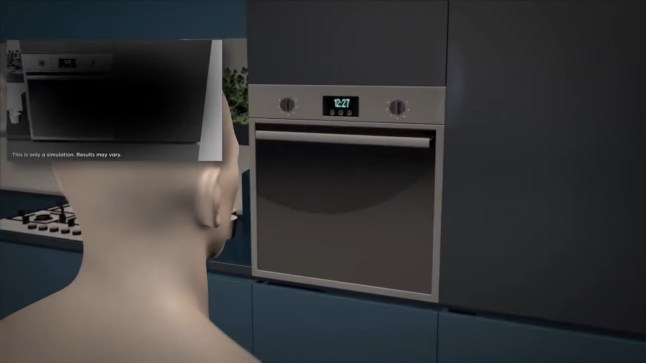
Science Corporation,a competitor of Elon Musk's Neuralink,used a brain computer interface,called PRIMA,which involves a pair of camera-mounted glasses that wirelessly emit signals to a chip placed under the retina to aid patients with macular degeneration (AMD). (Picture: Moorfields Eye Hospital NHS Foundation Trust)
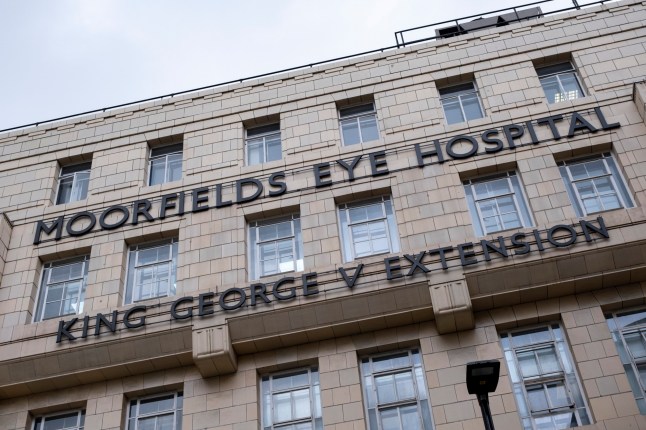
AMD is the most common sight loss condition over the age of 55,impacting more than five million people worldwide. It causes people to lose their central vision in a process known as geographic atrophy (GA),making tasks like reading,driving or even recognising faces difficult or impossible. While previous attempts of treating AMD slowed down progression,it did not improve a person’s sight. (Picture: Getty Images)
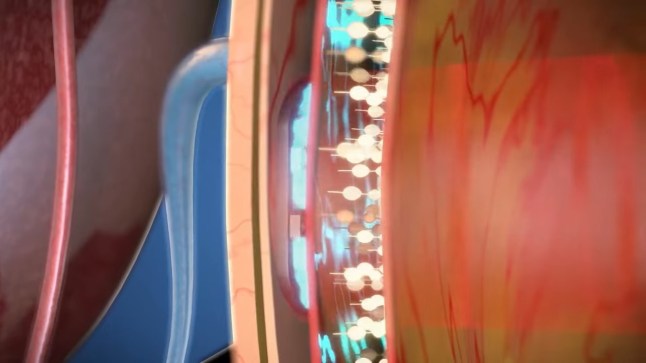
But this technology was tested on 38 participants in a clinical trial,across 17 sites in five countries,with Moorfields Eye Hospital in London being the sole UK site. 84% of the patients experienced a ‘clinically meaningful improvement’ after 12 months of use,according to the researchers. The procedure involves the surgeon inserting the ultra-thin microchip. that’s shaped like a SIM card and is 2mm x 2mm,under the centre of the participant’s retina. The patient then uses augmented-reality glasses,containing a video camera that is connected to a small computer,with a zoom feature,attached to their waistband. (Picture: Moorfields Eye Hospital NHS Foundation Trust)
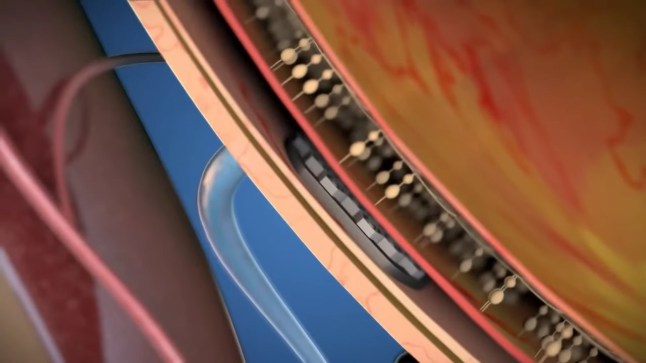
They use AI algorithms to process this information,which is then converted into an electrical signal. This signal passes through the retinal and optical nerve cells into the brain,where it is interpreted as vision. The patient uses their glasses to focus and scan across the main object in the projected image from the video camera,using the zoom feature to enlarge the text. However,each patient will need to go through an intensive rehabilitation programme over several months to learn to interpret these signals and start reading again. (Picture: Moorfields Eye Hospital NHS Foundation Trust)
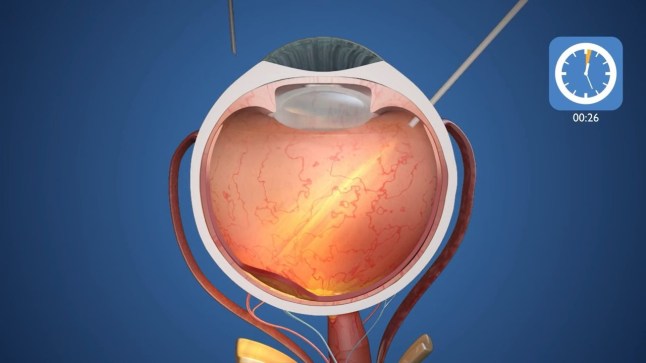
One participant,Sheila Irvine,who was one of Moorfields’ patients on the trial,said: ‘At first,I noticed I couldn’t judge things when I was driving - I kept hitting the pavement. I was told I had age-related macular degeneration. I cried all day long when I sent my driving licence back over 15 years ago,but then I said to myself,“Move on and get on with things.” I can't see TV very well,but I still have it on in the background. I don't let anything stop me. I’ve got lots of friends,we catch up down the pub,I live by myself and want to stay independent.' (Picture: Moorfields Eye Hospital NHS Foundation Trust)
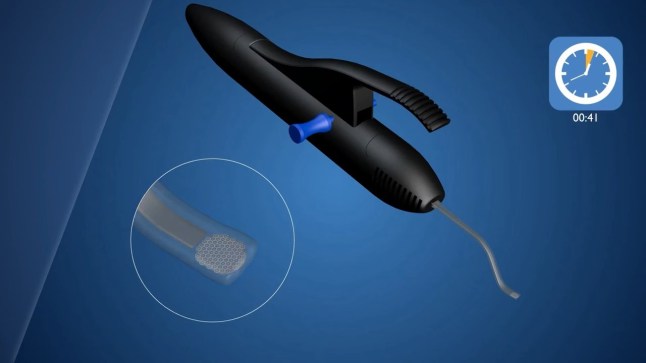
She added: ‘I wanted to take part in research to help future generations,and my optician suggested I
United News - unews.co.za